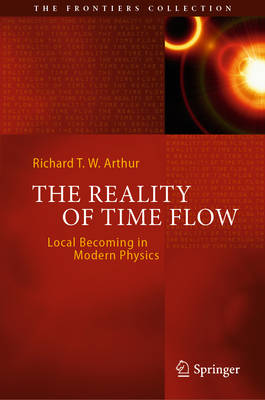
- Retrait gratuit dans votre magasin Club
- 7.000.000 titres dans notre catalogue
- Payer en toute sécurité
- Toujours un magasin près de chez vous
- Retrait gratuit dans votre magasin Club
- 7.000.000 titres dans notre catalogue
- Payer en toute sécurité
- Toujours un magasin près de chez vous
Description
It is commonly held that there is no place for the 'now' in physics, and also that the passing of time is something subjective, having to do with the way reality is experienced but not with the way reality is. Indeed, the majority of modern theoretical physicists and philosophers of physics contend that the passing of time is incompatible with modern physical theory, and excluded in a fundamental description of physical reality. This book provides a forceful rebuttal of such claims. In successive chapters the author explains the historical precedents of the modern opposition to time flow, giving careful expositions of matters relevant to becoming in classical physics, the special and general theories of relativity, and quantum theory, without presupposing prior expertise in these subjects. Analysing the arguments of thinkers ranging from Aristotle, Russell, and Bergson to the proponents of quantum gravity, he contends that the passage of time, understood as a local becoming of events out of those in their past at varying rates, is not only compatible with the theories of modern physics, but implicit in them.
Spécifications
Parties prenantes
- Auteur(s) :
- Editeur:
Contenu
- Nombre de pages :
- 287
- Langue:
- Anglais
- Collection :
Caractéristiques
- EAN:
- 9783030159467
- Date de parution :
- 06-05-19
- Format:
- Livre relié
- Format numérique:
- Genaaid
- Dimensions :
- 165 mm x 239 mm
- Poids :
- 635 g







